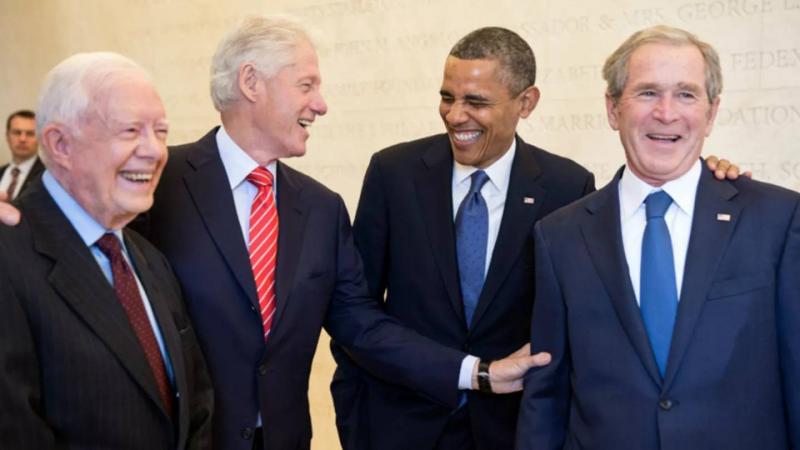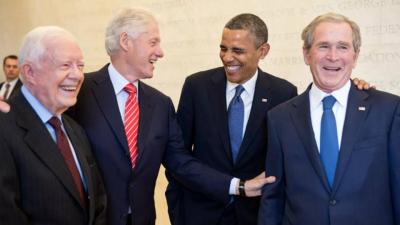Although it was expected that Israel would feel discontent with the United States for allowing the passage of a United Nations Security Council resolution on Monday calling for a ceasefire in Gaza during Ramadan, Israeli Prime Minister Benjamin Netanyahu's reaction was quite sharp, according to Time magazine. Following the resolution's release, with the United States abstaining from voting on it, Netanyahu announced the cancellation of a scheduled visit by a delegation of senior advisors to Washington to discuss the war and alternatives to entering a ground battle in Rafah, which would affect over a million civilians in southern Gaza. The magazine notes that Netanyahu’s behavior is not far from his long history of provoking American presidents, especially Democrats, and inciting their anger. It cites an incident involving Bill Clinton after Netanyahu "lectured" him in the White House in 1996, which angered the then-president, who reportedly asked his staff, "Who the hell does he think he is? Who's the superpower here?" The magazine argues that Israel's longest-serving prime minister has not learned from this experience and perhaps concluded that he would evade repercussions this time as has happened before, as "Netanyahu, who describes himself as an expert on U.S. affairs, believes that American support is a given," according to Time.
**"A Very Bad Bet"**
Despite President Joe Biden and Vice President Kamala Harris beginning to change their stance recently, stating that Israel’s military response to Hamas’s attack on October 7 was excessive and that Israel is indiscriminately bombing Gaza and killing many civilians, Netanyahu continues on his path. It appears he is gambling on Donald Trump returning to the White House by winning the upcoming presidential elections in November, according to Time. The magazine states, "Netanyahu and the right-wing hardliners in his government who want to annex the West Bank and are now looking to rebuild Jewish settlements in Gaza believe that if Trump returns to the White House, he will once again let Israel do what it wants. From their perspective, if Republicans can seize the Senate and retain the House, Israel will indeed achieve this."
However, the magazine perceives this as "a very bad bet," as "Trump cannot be relied upon to adhere to any positions he expresses at present, especially since he harbors resentment against Netanyahu for congratulating Biden on his victory in the 2020 election, and he originally asked the Israeli prime minister to end this war quickly and focus on peace."
**Trump: Netanyahu Should End the War in Gaza and Return to Peace**
Former President Donald Trump, the expected Republican candidate for the next presidential election, called on Israeli Prime Minister Benjamin Netanyahu to quickly end the war in Gaza. The magazine notes that "Netanyahu believes he will appear strong in the eyes of his political base if he challenges American presidents and other foreign critics, and he and his closest officials bolster relationships with Republicans, especially hawkish conservatives who admire what the small Jewish state can achieve in a region predominantly Muslim."
**The U.S.-Israel Alliance**
The magazine attributes the alliance between a superpower and a small state in a strategically distant region to factors such as "shared democratic values, the significance of the American Jewish community, the strong connection of Evangelicals to the Holy Land, and memories of the Holocaust." However, it suggests that this alliance "is not a natural given, as over time and with changes in the American demographic makeup there could be an erosion of support for Israel." It emphasizes that Netanyahu's insensitivity to his practices has led to dwindling support among progressive Americans, and that leftists have increasingly deemed Zionism as something deserving condemnation, pointing out that this is reflected in the current intense protests at American universities against the war in Gaza. Yet, it also notes, "Israel still enjoys widespread support in the United States, although this support is continuously eroding due to Netanyahu's behavior and that of the hardliners in his government."
**"Six Months"**
The magazine quotes former Israeli ambassador to Washington, Danny Ayalon: "American officials seem to speak politely but firmly with their counterparts, but Israelis pretend they do not understand what they are being told." Therefore, Biden's decision to abstain from voting at the United Nations, instead of shielding Israel as usual by exercising a veto, served as a message to Netanyahu that the threshold has been reached. The magazine points out that Netanyahu believes he can respond by canceling the visit of the Israeli delegation and asserting his determination to invade Rafah, risking the lives of hundreds of thousands of civilians. However, the reality is that Israel cannot afford to jeopardize American aid that is already flowing in. In addition to the $3.8 billion in annual direct military aid, the United States has sent more than 400 transport aircraft and 30 ships carrying 20,000 tons of ammunition, missiles, and other essential military equipment to help Israel continue its war in Gaza, alongside the fact that the U.S. is the main supplier of arms and protector of the Jewish state. The magazine quotes a former Israeli military leader stating, "Without these resupplies, the Israeli army would not be able to continue fighting for more than six more months."




